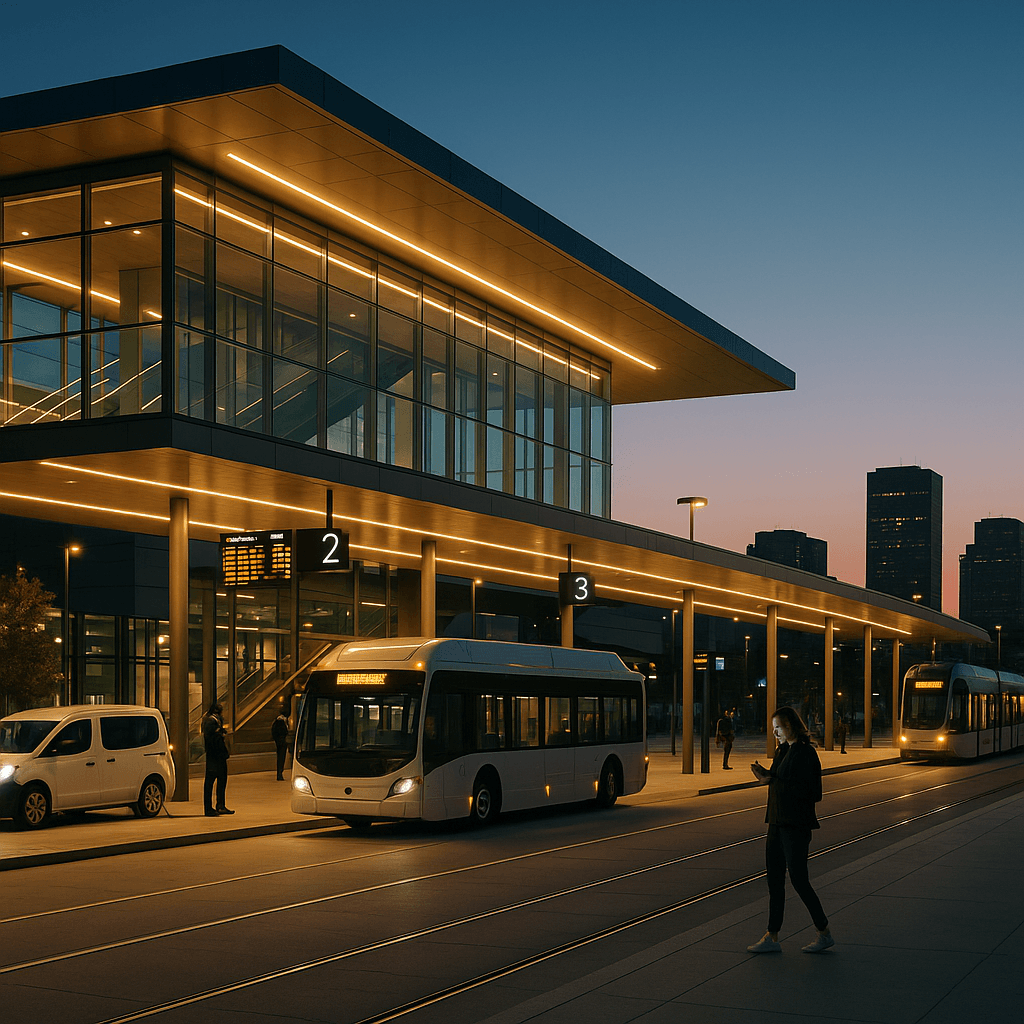Transit software startup Via just completed its long-awaited IPO, raising $492.9 million at a $3.7 billion valuation. The company, known for its on-demand shuttle services and Citymapper navigation app, priced 10.7 million shares at $46 each, marking a significant milestone in the mobility tech sector's evolution toward public markets.
Via finally made the leap from startup darling to public company, completing its IPO after years of speculation and two confidential filing attempts. The transit software company raised $492.9 million by selling 10.7 million shares at $46 per share, achieving a $3.7 billion valuation that's just slightly above its 2023 private market valuation of $3.5 billion. The modest premium suggests investors are cautious about mobility tech valuations, but Via's success could open doors for other transportation companies eyeing public markets. The company built its reputation on consumer-facing on-demand shuttle services before pivoting to B2B transit software solutions and acquiring the popular Citymapper navigation app. This IPO represents one of the few major transportation tech public debuts in recent years, coming at a time when the sector is maturing beyond the early ride-hailing boom of the 2010s. Meanwhile, across the Atlantic, German automotive giants are mounting what looks like a coordinated response to Chinese competition. At the IAA Mobility conference in Munich, BMW, Mercedes, and VW Group unveiled a parade of new electric vehicles designed to reclaim market share from Chinese brands like BYD, which nearly doubled its European market share over the past year according to JATO Dynamics data. VW Group CEO Oliver Blume struck a particularly bullish tone, outlining aggressive plans to compete in China's EV market where Volkswagen has been losing ground. The German automakers showcased their latest technology including Mercedes' new all-electric GLC, BMW's iX3 with four "superbrain" computers, and Volkswagen's ID Polo and ID Cross concepts. But the real story might be happening behind closed doors, where Hyundai is quietly doubling down on autonomous vehicle technology despite mixed signals from the market. Sources close to the company reveal Hyundai is investing an additional $452 million into Motional this year, with another tranche planned for next year. This comes after Hyundai already committed $1 billion to keep the autonomous driving startup alive when partner Aptiv backed out in early 2024. The continued investment is particularly interesting given Hyundai's simultaneous partnership with , suggesting the Korean automaker is hedging its bets on multiple AV technologies. The funding reveals how serious Hyundai remains about autonomous driving despite the industry's recent struggles and Motional's own challenges in scaling its robotaxi ambitions. In other mobility funding news, landed a massive $160 million contract with Curtin Maritime for hybrid-electric tugboats destined for the Los Angeles port by 2027. The deal validates the growing demand for electrified marine transportation, an often-overlooked segment of the mobility transition. Former SpaceX employees founded Arc Boats in 2021, bringing aerospace engineering principles to maritime applications. The transportation sector is also seeing regulatory movement as the Federal Aviation Administration announced a new pilot program allowing eVTOL startups to test operations before full certification. This could accelerate the timeline for air taxi deployments, though companies like Hyundai's Supernal are still struggling with fundamental challenges - the startup recently paused aircraft development after losing its CEO and CTO. secured testing permits in Nevada for autonomous vehicle technology, though the company still needs separate approval for commercial ride-hailing services. The move suggests Tesla is finally moving beyond promises toward actual regulatory compliance for its robotaxi ambitions. Not all mobility news is positive - faces a Justice Department lawsuit for allegedly discriminating against people with disabilities, while The Boring Company suspended Las Vegas tunnel work after an employee sustained a "crushing injury." These incidents highlight ongoing safety and accessibility challenges as transportation technology rapidly evolves.







